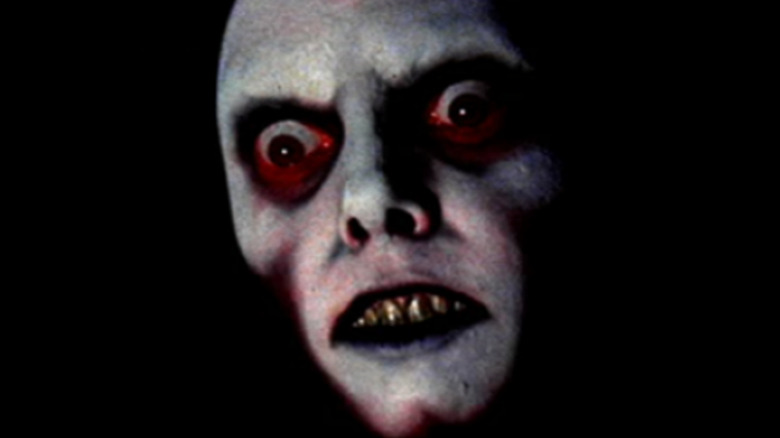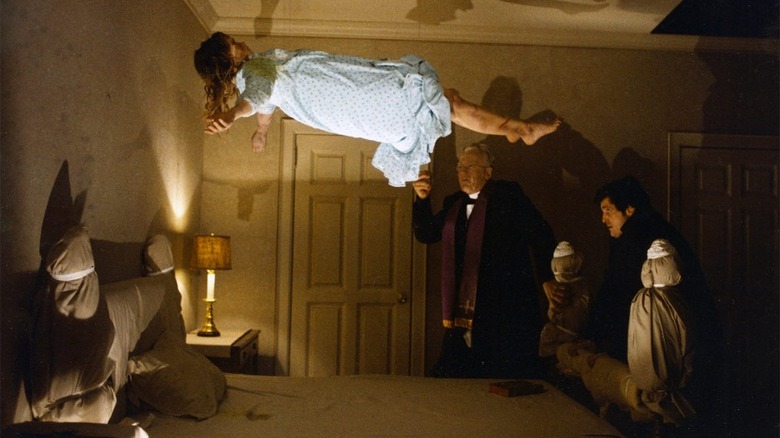The Exorcist Lawsuit You Never Knew About
For many, the movie-going experience is a sacred ritual. We pick the film and theater, select our seats, visit the concession counter for our favorite sugar-laden beverage and oversized popcorn, and settle in for the previews and feature film. Any deviation from the ritual risks a ruined experience. Of course, there are some factors beyond our control that can also mar the moment. If a movie isn't entertaining, no level of dogmatic adherence to the ritual can overcome the film's quality. In those instances, we wish we could get our money back.
In 1973, director William Friedkin's "The Exorcist" had audiences lining up to see what Variety called "an expert telling of a supernatural horror story." While many loved the film, one moviegoer's cinematic experience led him to file a lawsuit. His case hinged not on Hollywood releasing a stinker, but rather on the film's success in thoroughly scaring its audience.
The Exorcist really packed a punch
When "The Exorcist" came out, movie audiences were unaccustomed to seeing such unbridled gore and violence in a mainstream Hollywood release. In fact, many in the industry were surprised that the film managed to earn an R rating instead of the audience-restrictive X rating (via The New York Times). A collection of clips showcasing the audience's reaction to the film highlights numerous men and women who either hid under their coats or had to leave the theater to ease their fear and horror. Some viewers even fainted as a result of the movie's special effects and violence (via YouTube).
One of the many who were so overcome by the film that they lost consciousness ended up suing Warner Bros., the film's distributor. Apparently, when the viewer lost consciousness and collapsed, his face hit one of the theater's seats, which ended up breaking his jaw. He claimed that the film contained subliminal messages that caused his fainting spell. While it would have been interesting to see the case go to trial, Warner Bros. instead opted to settle the suit for an undisclosed amount of money (via WhatCulture). Knocking out a viewer and breaking his jaw likely wasn't Friedkin's goal when he helped adapt "The Exorcist" for the silver screen, but it certainly raised the bar for every horror movie that followed.

